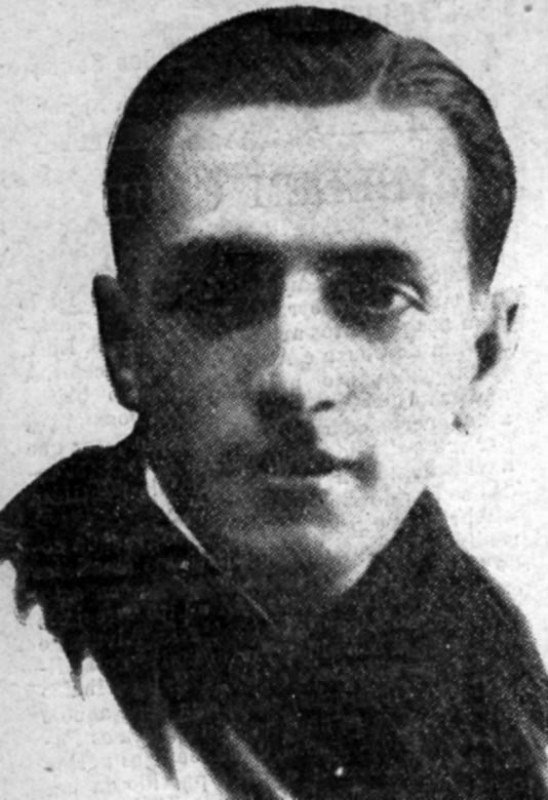Know more:
António Menano
(N. 5 May, 1895 - M. 11 November, 1969)Born on the slopes of Serra da Estrela in a family of 12 brothers and sisters, António Menano was without doubt the best known and popular singer of the Coimbra Fado.
He became the idol of the Coimbra Academy at a very early stage, enriching the student spirit and the Coimbra legend with a bohemian style typical of youth, marked by fado and serenades, a mix of art and romanticism, dreams and illusions. António Menano is so intimately related to the Coimbra Fado and conversely that you cannot dissociate one from the other.
To talk about António Menano you have to talk about the Coimbra Fado and its Golden Decade. According to João Seabra (no. 56 issue, Jan/Feb 1944, of Revista Turismo), the souvenir and nostalgia of Hilário gradually lost force with time, but Portuguese guitar recitals and singers will forever be heard on the banks of the Mondego.
Registered in the University, António Menano saw his star begin to shine in March 1915 singing the fado in Aveiro, at a Night Show organised by the Associação Académica de Coimbra, also starring the university’s Musical Band and Choral Society.
In the 1914-1915 the University’s Choral Society was reorganised, under the direction of Dr. Elias de Aguiar. António Menano became its soloist and rehearsed the First Tenors. He also became “lead” singer of fados and songs at the Night Shows and other events then held.
António Menano was invited to participate in a tribute to Camöens promoted by the students of the Liceu José Falcão, in Coimbra, at the end of that school year, on the 10 June 1915. Instead of fado, he sang an excerpt from “The Lusiad” with musical score composed by Dr. Elias de Aguiar.
Also 1915 saw the first musical edition of a book of fado songs by António Menano, “Os três mais lindos fados de Coimbra”, published by Livraria Neves.
In the school year of 1915-1916, in February, the Academic Choral Society travelled to Porto, Braga and Vila do Conde. António Menano was finally recognised as a top star in the Coimbra arts world, accompanied by Paulo de Sá and Alberto Menano (Portuguese guitar).
In 1918 António Menano became a member of the Directorate of the Academic Choral Society.
In the meantime a collection was published with musical scores of the “Reportório do Orfeon da Universidade”, including fado songs by António Menano (“Patriótico”, “Da Granja”, “Das Romarias”, “Do Choupal”, “Dos Passarinhos” and “Morena”). It was a tremendous success.
In April 1923, António Menano, already married but not yet a university graduate, joined the tour of the Academic Choral Society and Musical Band to Spain, with performances in Salamanca, Madrid and Valladolid.
In June 1924 the Academic Choral Society travelled to Paris and performed at the Trocadéro. This performance was followed by shows at Toulouse, Bordeaux and Bayonne.
Once he finished his degree in Medicine, he became a practicing physician at Fornos de Algodres, hometown of the Menano family, where his parents, António da Costa Menano and Januária Paulo Menano, dwelled. Although a graduate he remained associated with the artistic and academic life of Coimbra, where certain university traditions were then being revitalised.
António Menano would become the most renowned singer of Coimbra, known and famous all over Portugal, thanks to his recordings made in 1927 and 1929 in Paris, Lisbon and Berlin for the Paris-based Odeon label. Of all singers of the so-called Coimbra Golden Decade, António Menano was the one who made more records and achieved a greater success.
Years later, in 1933, after free-willingly abandoning his comet-like impressive artistic career, the most promising of the Golden Decade (1920 to 1930), Dr. António Menano left to Mozambique and practiced medicine there for nearly 30 years. His final return only occurred in 1961.
From time to time he visited Coimbra and always ended up singing at some venue, as long as the occasion was appropriate.
António Menano died on the 11 September 1969 but his souvenir remains in our memory. We miss his voice but this nostalgia can be offset by listening to some of the records he left us.
António Menano was decorated with the insignia of Knight of the Military Order of Santiago da Espada.

-
Fado dos Passarinhos António Menano (António Menano)